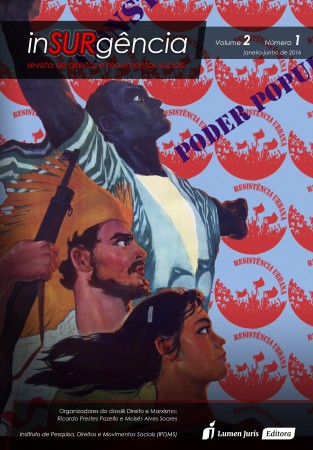The Constitution of 1988
DOI:
https://doi.org/10.26512/insurgncia.v2i1.19036Keywords:
Constitution. 1987-1988 Constituent Assembly. Authoritarianism. Liberalism. Democracy.Abstract
The Brazilian 1987-1988 Constituent process resorts to the legal arsenal of bourgeois political theory that comprises three clearly differentiated aspects: the authoritarian one, by Hobbes and Hegel; the liberal one, of Locke; and the democratic, of Rousseau. The Brazilian constitutional tradition, which has been developed within bourgeois political theory, has as decisive influences, in the first place, the authoritarian current, and, in the second, the liberal one. The Constitution of 1988 resulted in a compromise between authoritarianism and liberalism, represented in the permanence of the presidential system, even though it has introduced into the Brazilian constitutional tradition an innovative element, a more openly democratic character. Thus, new or renewed juridical figures appear that submit the Brazilian State, making it more permeable to the popular initiative, which is an unprecedented in the constitutional history of the country - all due to the social struggles that preceded and that were concomitant to the Constituent, that have no parallel in the modern history of Brazil. Nevertheless, the economic order and participatory democracy are quite restricted, something more coherent with the liberal tradition than with the democratic one. Finally, it is the bet in the popular mobilization that will allow to realize the potentialities that the 1988 Constitution outlines.
















